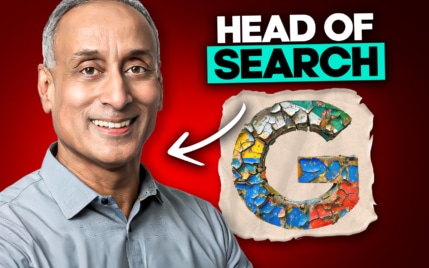Podcast 151: How Nathan Hirsch Built FreeeUp.com Into a Multi-Million Dollar Business

When you buy something through one of the links on our site, we may earn an affiliate commission.
In today's episode, I interview Nathan Hirsh, co-founder of FreeeUp.com.
How did Nathan go from college student, to selling products on Amazon, to launching one of the top freelance marketplaces? Listen in to hear the entire story of FreeeUp.
Topics mentioned in this episode:
- Retail Arbitrage
- Selling on Amazon
- Why they started Freeeup.com
- How they've grown it to billing clients over $10 million a year.
- Who owns FreeUp.com (without the 3rd “e”).
- How to vet freelancers for attitude before hiring.
- How FreeeUp only hires the top 1% of freelancers
In addition, if you want to get a $50 credit to your account when you try FreeeUp, you can use this special link for Niche Pursuits readers only right here.
Get $50 Discount on FreeeUp HereI hope you enjoy the full podcast episode!
Full Transcript
Spencer: Did you know that most websites that I look at have several pages or posts that don’t have any internal links pointing to them? Unfortunately, including my own. Internal links can be one of the most powerful ways that is completely under your control, that you can send some link, choose to certain pages. If you don’t know how to see whether or not your pages have internal links pointing to them, my new WordPress plugin, Link Whisper, has a reports feature that shows all the posts on your website and how many internal links are pointing to those pages. You can just sort by those pages to see if they don’t have any links at all, you might be surprised that you have pages you’re trying to rank in google for but you haven’t even built a single internal link to that particular article.
With Link Whisper, you can quickly check out the report then you just click the add button. Within a few seconds, checking a few boxes, you can add those internal links. It really does speed up the process. Link Whisper is in beta right now, but it’s going to be released very soon. In fact, as this podcast is being released, it may be available. I’m not 100% sure. If you go over to linkwhisper.com, you can either get on the waitlist to be notified when it is available or you’ll see that it is ready to be purchased right there. I hope you’ll check out linkwhisper.com. It’s a tool that I’m really excited about. I’ve been using it on my own websites now for a couple of months and it really does speed up the internal linking process.
In today’s episode, I have an interview with Nate Hirsch from freeeup.com. How did Nate go from being in university, and then selling products through Amazon FBA, to creating his own freelancer website? Listen to the interview to find out. Nate has a really interesting story. He built a business during college, found his partner as well, initially hired him as an employee, and their business quickly evolved from selling products on Amazon to creating a marketplace where you can go and hire a freelancer to do anything from help you with your Amazon FBA listings to now doing SEO, website design, pretty much you name it. You can find a freelancer to help you out on freeeup.com.
In fact, Nate was kind enough to setup a special page for me. As a Niche Pursuits listener, you can get a $50 credit if you go and sign up your first freelancer by going to freeeup.com/nichepursuits. During the interview, listen and we talk about why is there a third E. He’ll share that story with you as well. Overall, I hope you enjoy this interview and get some actionable techniques that you can take away and apply to your own business.
Hey, Nate. Welcome to the Niche Pursuits Podcast.
Nate: Spencer, thanks so much for having me. I’m excited to be here.
Spencer: It’s great to have you on. We connected just a little while ago. Actually one of your clients that uses freeeup.com is really happy with the service. They reached out to me and said, “Hey, you got to connect,” so here we are a couple of weeks later, chatting. I’m super happy to have you on, hear about how you’ve grown your business, freeeup.com. Before you started that business, I’m curious about your background, whether that is professional work experience or any other business experience. What were you doing before you built FreeeUp?
Nate: I always joke that I’ve never had a real job. Growing up, my parents were both teachers and they always had that mentality that I would go to school, get a real job, work for 30 years, and retire. That’s what they did and they’re doing well; there’s nothing wrong with that. They always made me get these summer jobs. By the time I was 15, legally allowed to work in Massachusetts, I was working 40–50 hours a week while all my friends were outside playing. I learned a lot about customer service, sales, and how to manage people, but I also learned how much I hated working for other people. I watch the clock everyday, I couldn’t wait to get out of there.
It was almost like a glimpse into the future. When I got to college, I looked at it as a ticking clock. I had four years to create a business. I was going to go into the real world, never look back, and really not being able to get out. When I did get to college, I started hustling right away. Freshman, sophomore year, I took that summer money that I made, a few thousand dollars and I started buying people’s textbooks, competing with my school bookstore. I created a little referral program and before I knew it, I had lines out the door of people trying to sell me their books to the point where I actually got a cease and desist letter from my college telling me to knock it off because I was taking too much with the bookstore business. That was my first glimpse into being an entrepreneur.
I pivot it a little bit. I come across Amazon. This was back in 2008. No one really knew what Amazon was, kind of this big bookstore. I didn’t want to get kicked out to school so I couldn’t sell books anymore. So, I kept experimenting with what I could sell. I tried video games, sporting equipment, computers, typical college guy stuff that I was into. I just kept failing over and over and over. The only thing I could get to sell were these books. It wasn’t until I branched out of my comfort zone a little bit through trial and error—keep in mind there wasn’t any of these software back then that you could find profitable products and all that—and I found baby products. If you can imagine me as a 20-year old, single, college guy selling baby products on Amazon, that was me. I got a ton of weird luck. I would sit in the back of class just listing baby products all day, but sales took off. People love their baby products.
Spencer: To clarify, were you doing retail arbitrage there?
Nate: Yes, I was drop shipping and I was doing retail arbitrage. Eventually, I went around the retailers and made relationships with those manufacturers. I’m selling these baby products, I’m making more money than any 20–21-year old should make, and my parents told me I should probably pay taxes.
So, I meet with an accountant and the first question he asked me is, “When are you going to hire your first person?” I kind of shrugged him off like, “Why would I do that? That’s money out of my pocket. They’re going to steal my ideas. They’re going to hurt my business. I can do this seven days a week forever.” He just laughed in my face and he said, “You’re going to learn this lesson on your own.”
Sure enough, my first busy season comes around; the fourth quarter. No idea what fourth quarter is, I’m not prepared, it’s me doing everything, and I just get destroyed. I’m working 20 hours a day, my social life plummets, my grades go down, and I work my butt off to get to January. I didn’t want my baby to die; my business. I make it out to January and I think, “Man, I can never let that happen again. I need to start hiring people.”
I know nothing about hiring, I’m just a 20-year old punk entrepreneur. I posted a job on Facebook and this guy in my business law class says, “I don’t know what you do, shoot me a message, but I need a job.” I said, “You’re hired.” I didn’t even interviewed him; ends up being an amazing hire. He takes all this work off my plate, he does it at a high level, he’s smart, and he brings his own ideas to the table. His name is Connor Gillivan and he ends up being my business partner with my Amazon business. He’s now a co-owner of FreeeUp. We’ve been working together for eight plus years. I get jackpot right in the beginning.
There I am thinking, “Man, this hiring thing is easy. You post a job, someone shows up, your life becomes easier, you make more money,” and I just perceived to make bad hire after bad hire after bad hire, quickly learning that college kids are not really reliable. I was not their top priority and no 30-year old wanted to work for me or would take me seriously as a 20-year old entrepreneur.
That’s how I got to the remote hiring space, the Upworks, the Fiverrs. Through my poor experiences there—I found a few good people who are still with me—going through a lot of bad experiences, that’s when I had the idea to build my own marketplace, FreeeUp, which I’m sure we’ll talk it out. That’s how I went from a broke college kid to starting my Amazon business.
Spencer: Very cool, thanks for sharing the story. It’s really interesting to hear people that are building things while they’re going to school in their college dorm room there. Out of curiosity, what was the peak earnings of your Amazon business?
Nate: I sold over $25 million on Amazon. I was making hundreds and thousand of dollars a year. I remember looking at my phone when I was at an internship. I had two internships. One, when I was in high school until my senior high school; that was at the Aaron’s Corporation. I worked at Firestone, senior high school going into college until about sophomore year of college. I remember being at my internship, watching sales come in my phone, and realizing I was making 20 times than I was making per hour at the internship just on my phone. Then I quit and focused 100% on Amazon.
Spencer: Did you end up graduating?
Nate: I did. We’re doing audio only, but I have this college degree behind me that I never really used.
Spencer: I’m similar. I graduated, of course, even went to graduate school, but now, most of what I’ve learned, I’ve taught myself or learned online. The piece of paper, it’s nice to have, though.
Nate: My parents were both teachers, so not graduating was not really an option.
Spencer: It’s not an option, very good. Let’s jump into the story of FreeeUp. You gave us a little bit of the genesis of where the idea came from, sounds like you had bad experiences on Fiverr, probably elance.com at the time, Upwork, that sort of thing, oDesk I think back in the day, so you came up with the idea. Maybe flash that story out a little bit. Why did you really start that and decide to make it a more focused venture?
Nate: Let’s put the Amazon thing in perspective. I did over $25 million a year. At our peak, we were doing over $5 million a year. Amazon’s fun, it’s exciting, I’m a new entrepreneur, but Amazon’s tough. Their terms of service are crazy, they’re making it harder and harder. Meanwhile, on the flip side, all these gurus and courses are coming out, the Amazon space is getting more and more saturated, drop shipping is becoming harder. Instead of doing $5 million a year, we go to $3 million, to $2 million, up to $2.5 million. We’re kind of straggling along.
We’re not building a brand, we have no patents, we have no products, we’re selling other people’s products. We’re good at it, but there was really nothing to build. Once we stopped doubling every year and all we were doing was churning over, trying to stay on top of the Amazon’s policies, rule changes, and trying to stay up float, we were making money, we were making a good living, but the passion just wasn’t there. It got old really fast by the time we got to year five, six, seven.
Meanwhile, we had ventured into the remote hiring space. We had some great VAs, some great freelancers. Keep in mind, with freelancers, we didn’t need them all the time. During our busy season, we’d hire a bunch of people and after busy season was over, especially during the summer months where we’re in now, we didn’t need all these people. We had come up with this pretty good vetting process. We realized a long time ago that when you vetted people just for skill, a lot of time that blows up in your face.
We came up with this vetting process that which for skill but it was also for attitude and communication as well. We knew the type of people that we want. For attitude, people who are passionate, people who weren’t in it just for the money, people who didn’t get aggressive the second that things didn’t go their way. Communication was everything when you’re working remote. People that could respond within a business day, that let you now upfront when they have a personal issue that could hit due dates, obviously spoke English our language.
We had this vetting process down. Talking to other Amazon sellers, they had that same issue, it just took forever to find the right talent. If they needed an Amazon lister or a customer service rep, they needed that person today. They didn’t have two weeks to wait to go through 50 applicants. That was the initial concept of FreeeUp. We have this pool that we’ve already vetted, that we’re not maxing out all their hours, we’re going to start offering it to other Amazon sellers.
The idea of FreeeUp, we started with $5000, we had the most minimal viable product. We hire this developer that we use on our Amazon business to build some Amazon software, to build a very basic time clock. The freelancers could clock it, they could clock out, the clients could see the freelancer’s names and the hours on their side and that was it, there’s nothing else in the software. Clients would email us what they need or message me on Facebook or text me, we would then introduce them to their freelancer. If they want to hire them, we would go in and manually add the freelancer to their side.
The initial clients, the feedback was great. They loved it. They needed a graphic designer today? Boom. They had one today. What we did was we created a referral program. We said, “Hey, any clients that you refer to us, you get $0.50 for every hour that we bill to them forever.” That was probably one of the best business decisions I ever made because people that loved the service without us spending any money on marketing or advertising, started telling other sellers. People are talking about us. I remember someone calling me and saying, “Hey, I was just at a conference in Japan or China, and people are talking about FreeeUp.” We never even marketed there. That was pretty cool and that’s really how we got it off the ground.
Spencer: That’s awesome. Sounds like it started more like you had several freelancers/employees that you were using and at the time that they weren’t using, you would outsource your own people. The very initial set, you had graphic designers or whatever and you would allow people to use them as well. Is that right?
Nate: Yeah. Not employees, but yeah.
Spencer: Of course it snowballed from there quite a bit. I have to ask, the name FreeeUp has three Es in it, why?
Nate: We want the one with two Es, but Verizon owns it. We’ve been trying to get it from them for a while. I don’t think they’re selling although they don’t use it for anything. The initial thing was ecommerce, that was our focus. Now we branched into marketing, we work with nonprofits, real estate agents, and all the different types of business. At first it was FreeeUp, the third E is for ecommerce. It made a little bit more sense then that it did now, but we loved the idea of free up your time. That was the best thing that we came up with. We really wished we got the one with two Es but we’re pretty happy with the three Es, too.
Spencer: It seems to be working. You’re growing a large business and maybe you can convince Verizon at some point. We’ll see. That’s interesting that they own that. I noticed, yeah there’s really nothing on the domain right now.
I would like to give people a sense of how well your business is doing, what can you share? If you’re willing to share income numbers, people love monthly income numbers or annual, whatever, or traffic, or anything else that can fill people in on the success of FreeeUp.
Nate: We’ve bill over $200,000 a week. We grew that from $5000 investment to $1 million in the first year, $5 million in the second, $9 million in the third, this year, who knows? It’s like ecommerce, too. Part of it is back loaded but we’re hoping to surpass $12–$13 million this year.
Spencer: You say that much billed.
Nate: Correct, that’s top line.
Spencer: That’s top line. That’s what the clients are paying the freelancers and then you take a percentage of that?
Nate: Right. We take 15% with a $2 minimum per hour and 15% on fixed prices.
Spencer: Sounds good. That’s some tremendous growth. First of all, congrats on that, sounds like things are going well.
Nate: Thank you. It’s been a lot of fun. I’m excited to see how far we can push this thing. The cool thing about us is we have no office. We’re entirely remote. We really practice what we preach. We only hire virtual assistants from our platform to do all the day-to-day stuff. We only hire freelancers from our platform, that we’re just one of their many other clients to do our high level stuff like our blogs or Facebook ads, everything like that. I’m excited to see how far we can push this thing. Some people have told me I’m crazy, I need some office, and I’m going to have to hire some full-time employees in the US at some point, but I want to see how far we can keep going with the current model.
Spencer: That’s great. If you can keep things virtual, obviously that cuts down the overhead. More so, it allows you to have your own freedom in terms of everybody else can work their own hours, I imagine you work your own hours. In my business, that’s the reason I’m emphasizing this. I do the same thing. Everybody’s virtual. When I allow people to work the hours that they want to work, there are sleep schedule that they want, things get done a lot better more effectively. There are still, of course, that overlap where you can communicate with the people that you’ve hired.
Nate: Actually, opening up an office was one of the worst business decisions I ever made. Around year four, we did that. We took all these people that love being remote, we move into one place, we pay for a few people to relocate. We thought that it would lead to a better culture, a better work environment. It actually led to more drama. I also felt like I created a nine-to-five job for myself, that I had to drive into everyday which is terrible, not to mention the overhead and all the other expenses that go with it. We quickly got rid of that and we’ve 100% remote ever since.
Spencer: That’s interesting, that you tried that, that you tried opening up an office. About how long was your office open before you shut it down?
Nate: A good year-and-a-half, but we had to break the lease so it was a little longer than that. We paid for a space and we weren’t even using.
Spencer: There you go, that it an interesting lesson. If people are tempted to get an office, maybe it’s worth thinking twice or chatting privately with you to get more details on that, right?
Nate: Exactly and it could work with other people. I have plenty of clients who are doing way better than I am. They have an office, they have a hybrid of US employees in the office, and then virtual people all over and it works for them. For me, I’m like you, I love the remote lifestyle.
Spencer: Absolutely. Let’s dive into the platform itself. Why would people like me consider FreeeUp as opposed to something like Upwork? Why would I do that?
Nate: I tried to take everything that I like about the other platforms and change everything that I didn’t like. If you go to the other platforms, you post a job, you get 50 people to apply, anyone can offer their services there. You have to go through them and hopefully you get someone good. If you do and they quit on you later, you’re right back where you started interviewing people again. With FreeeUp, we get thousands of applicants every week. I think last week we got something like 2000 applicants. These are virtual assistants, freelancers, agencies from all over the world, $5–$100 plus per hour, fixed price is $2, over 100 skill set.
People have to apply to get in. We take the top 1%. One out of every 100 applicants get to be service providers on our platform and clients, they don’t have to browse. It’s free to sign up, there’s no monthly fee, there’s no minimums. When you have an account, anytime you want someone, you click request a freelancer, it’ll ask some questions so we know exactly what you need. Within a business day, usually faster, we’ll introduce you to someone. You can meet with them, make sure you like them. Do you like them? You can hire them. You can also negotiate rate or agree to a fixed price, whatever you want to do.
If you don’t like them, you can click pass and provide us feedback. We get you someone else based on that feedback. We’re fast. We have clients who get started within hours or minutes of putting in their request. If you say, “Send me three options, send me five options,” I’m more than happy to do it. Most people come to us because they don’t want to meet 20 people, but if you want to, have many as you want, we’re happy to do it.
On the back end, I would put our customer’s support against anyone out there. My calendar is right on the website. You can always put your time with me. I text every client that signs up. We also have a team of people that work underneath me that cover my Skype, email, live chat 24/7. If you have even the smallest issue, we’re always there. We want it to be hassle-free. On the back end, we don’t turnover the biggest business killer. People on our platform rarely quit. Of course it’s real life, it can happen. If it does, we cover all replacement cost. We have a no turnover guarantee and we get you a new person right away. That’s really the four ways that we’re different. The pre-vetting, the speed, the customer service, and the protection.
Spencer: That makes a lot of sense. Upwork is nice but it has a lot of those limitations. You do have to vet lots of people. You can get tons of applicants, it can take a lot of time. I guess it just becomes a matter of putting a little bit of trust into the team over at FreeeUp in terms of they are finding, vetting, and getting the best applicant for me. Yes it’s a small leap of faith, but it makes absolute sense if you pre-vetted those freelancers for us to free up that time and the ability to hire quickly.
Nate: We’re really on your side. Like I said before, it’s free to sign up, you’re not buying a package upfront, there’s no obligation, and it’s in our best interest to get you people you actually like that help you grow your business. Obviously, we want feedback. If you don’t like someone we send, we’re pretty good at getting it right on the first try, but if we don’t, tell us why. We’ll update that request and we’ll make sure that the next person is a better fit.
Spencer: You guys have grown quickly. Why do you think you’ve grown so quickly? What’s the biggest reason for that?
Nate: It’s funny. For the first year and a half, we didn’t spend any money on marketing. We really focused on three things. One, I mentioned our referral program. Last year we paid out $250,000 to our affiliates, to our referrals. And then podcast. Podcast have been huge. I’ve been on over 150 podcast. It’s been a quick way to not only share my story, but just get FreeeUp in front of thousands of people at […] and that’s been a huge way that we grew our business. The third is influencers. Whether it’s people like you, or Ben Cummings, or Jim Cockrum, Scott Walker, people on the Amazon marketing communities that believe in our service, that will promote it to their students, their audience, their following because they know, yes, they’ll get that referral money, but they also know that if they send someone to us, we’re going to take care of them. We’re going to make sure that they have a good experience. Building those relationships have been the key.
That’s been the three ways we got FreeeUp off the ground. Now that we’re bigger, we have our blog that gets 10,000 views a month. We run some Facebook ads, we put sponsor conferences and different events. It really comes down to that core of getting people really good, high quality freelancers, treating them right on the customer service side, and then finding ways to get in front of large quantities of business owners that have probably used those other platforms and most likely not had a great experience and are willing to give us a chance. It’s not like I’m selling a $5000 package to sign up. The barrier to entry is really small. When people give us a chance, they usually have a great experience, stick with us, and hopefully tell other people.
Spencer: What is your marketing team look like? Is it just you and Connor, the other owner, that are pretty much doing everything? Or do you have other marketing people in place that are helping out?
Nate: Yeah. We have graphic designers, we have video editors. Our marketing goes a bunch of different ways. We have our YouTube, we have our podcast, we have our blog, we have our Facebook Ads which we’ve actually cut back on and we’re just focusing them on the freelancer side. We’ve got people that go after influencers so lead generation, people have a following whether it’s their own blog, their own podcast, their own Facebook group. That’s really it.
It’s lead by Connor and I. Connor handles a lot more behind the scenes. We really divide and conquer. I’m much more of the sales, the processes, the customer support, the day-to-day operations, the face. He’s much more behind the scenes, our website, our developers, our behind-the-scenes content. They’re all virtual assistants, they’re freelancers.
We have a VA in the Philippines who has 100,000 followers on his own YouTube channel and he runs our YouTube channel. We have graphic designers that are available to our clients. If you checked out any of our infographics or our ebook, 36 Tips for Hiring a Remote Talent, that you can get in our Facebook group, Outsourcing Masters, that was made by one of our writers and one of our graphic designers. It’s our content but they went through and made it better. All that stuff, we really utilize our own platform to build out everything that we need.
Spencer: That makes perfect sense. I can understand where you’re getting clients, customers. At least, I understand that because you’re doing things like coming on my podcast, you mentioned other people, influencers, you got a referral program. I can understand a lot of the business that’s probably coming in to generate clients. How are you getting the freelancers? Getting the word out and recruiting freelancers, what’s the biggest source there?
Nate: It’s very similar. We go on freelancer podcast, we have freelancer influencers that we use, people that are coaches, they might have a freelancer podcast and a YouTube channel, influencers in different ways. That same referral program that’s on the client side is also on the freelancer side. If you refer a freelancer and they get through our vetting process, you make money on every hour that they build forever. It’s really the same thing on both sides. The only difference now is we cut back on our client ads and we really target freelancers on those ads for whatever reason we found. Those convert better whereas we can spend those resources that we would put into client ads into getting client influencers and lead generation.
It’s really the exact same thing married on both sides. Maybe the other difference is I don’t really attend freelancer conferences although we’ve sponsored a few from afar, but mostly the conferences are just on the client side.
Spencer: I guess that makes a lot of sense. I might think that there are potentially clients, they’re going to end up hiring freelancers, but in reality, probably a lot of them wouldn’t mind getting paid to write content or do other virtual assistant-type task. I guess my audience is made up of probably both and that makes perfect sense that the marketing strategy would work for both clients and virtual assistants there. Any other marketing strategies that have worked really well for you guys?
Nate: We tried to share content on how people can hire better regardless of whether they use our platform. I kind of take the approach of sales and marketing. It’s not like I’m in your face, “You need to use my service.” “Buy right now.” Or, “You need to hire this.” When you get to a point of your business where you can’t scale anymore because the average $1 million you sell or $5 million you sell isn’t a solo business owner, they usually have to have a team. If you want to get to that level, then there are certain strategies that you need to entail.
For example, there are three different levels of people you can hire, the basic level, the followers, the people that are there to follow your systems, your process. The mid-level, the doers like graphic designers, the writers, the bookkeepers. You’re not teaching a graphic designer on how to be a graphic designer, they’re not consulting with you either. And the high level freelancers, the consultants, the agencies, that bring their own strategy at the table.
If we can educate people on where are you on your business? Are you stuck in the day-to-day operations? Are you someone who just has all these projects building up that you can’t do and you need to get them off your plate? Or are you kicking out on something new that you could spend the next six months on learning how to be a Facebook ad expert but that’s probably not a great use of your time and you can’t do that with everything in your business? So, let’s hire an expert to come in there.
Most of our marketing revolves around content, webinars, or Facebook live we put on with other influencers. We never go in there with a pitch like, “You have to use FreeeUp because we’re better than everyone else.” It’s, “Hey, we believe in our service. If you use our service, we’re going to treat you well, but let’s teach you how to hire better and smarter,” because it’s one of those things that they don’t teach you in business school. They might teach you economics, finances, and how to make a balance sheet, but they don’t teach you how to hire, manage, and lead people. It’s such a key to growing your business. If you can’t do that, it really can be the difference between success and failure.
Spencer: Maybe you can give us one of your top tips for hiring here. You do a lot of vetting and your team does a lot of vetting to get the top 1%. What are some of those telltale signs that either a potential hire is not a good fit or is a really good fit. What are some of those things that really standout when people are looking to hire?
Nate: For me, I like to work with people that can take feedback and not take it personally. That has been a huge thing for me. I’m a big fan of the feedback loop in general, I want to hear feedback. Some of the best feedback, some of the best ideas, ones that made me $100,000 or saved me $100,000 have come from other people. I want to be open to that.
On the flip side, if I’m working with you, whether you’re my business partner, whether you’re a vendor, or a virtual assistant in the Philippines, I need to be able to give you feedback, too, and have you not take it personally. It’s not because I hate you. It’s not because I don’t want what’s best for you. It’s because this is what I think we should do and it’s like collaboration. If you don’t think that’s right, let’s talk it out and get on the same page.
For me, That’s one of those things that’s a deal breaker. Sometimes, I see this a lot with business owners, they’ll keep someone around because they’re hitting the numbers or they’re producing certain results, but that attitude just isn’t there whether it’s the passion, whether it’s how they talk to people, whether it is that not being able to take feedback, or anything along those lines. If you don’t address that or eventually you’re not able to turn it around, we remove that person from your business.
You’re really just sending a clear message to everyone else that you work with that attitude, that culture just doesn’t matter as long as you hit the numbers. Short term, maybe that’s okay, but long term, that’s going to cross your business. It’s going to lead to turnover, it’s going to lead to people not wanting to work with you, and it’s going to really hurt you. It’s one of those things that you can’t look past that poor attitude. I feel like some clients, some business owners will do that if they’re getting those short term results they want.
Spencer: How do you vet for that? Specifically on FreeeUp, how do you tell somebody has a good attitude and allow them to be on your platform?
Nate: For me it’s all about the red flags. I once took a college class on how to interview. It didn’t teach me how to do any particular job right. It just taught me how to answer interview questions, how to BS them. A lot of people going to the interviews with virtual assistants, with freelancers, with anyone, they’re looking for those right answers. For me, we’re going in there and we’re saying, “What are the red flags? What is the person saying that tells me they don’t have the skill that they said to you? That they’re going to have a bad attitude? They’re not going to be the attitude you want? They’re not going to be able to communicate?”
It could be something as small as challenging them in the interview process. How would you rank yourself on Amazon listings? Why do you think you’re a seven out of ten instead of a four out of ten? Challenging people is a small example but also a great way to see whether someone will have a great attitude. If they get defensive right away, if they challenge you back as opposed to staying calm, cool, and explaining themselves, if you give someone feedback on their work, we already talked about not taking it personally, being able to accept that and saying, “Okay, we can tweak it for what you need.” Those are small examples.
While we vetted people for skill, attitude, and communication, what we encourage clients to do—although they’re welcome to do their own vetting for those three things—is to really focus on is this person the right fit for them? Even the best freelancer in the world isn’t the best fit for every single client out there. That’s really what you have to focus on. I talk fast, I move fast, I’m very direct, I leave emotions out when it comes to running a business or at least to making business decisions. If you have me work with someone that’s warm and fuzzy, that can’t handle that speed, it’s not going to work out even if they’re a great freelancer for you. That’s when I encourage clients to do. Yes you can vet for that skill, attitude, and communication even though we’ve already done it, but really focus on the type of people that you work well with, that you want to surround yourself with everyday. That’s how you find that really good fit that can stick with you.
Spencer: I think that’s a great advice. Maybe this is taking a step a little bit back but to clarify, when you first started FreeeUp, it was very focused on Amazon because that’s what your business was. What type of freelancers are available now? Maybe you can just go through sort of the spectrum of the type of people we can hire on FreeeUp.
Nate: We’ve gone through this progression. When we started FreeeUp we said, “People are going to want VAs for Amazon sellers $5 to $25 an hour.” And then people wanted US freelancers. So, we expanded it. $5 to $50 and eventually $5 to $75. Amazon sellers started telling other people in ecommerce space. So, we got Shopify store owners need to watch Shopify stuff. Then we expanded from there and to the marketing community, whether it’s QuickFile, or Facebook Ads, or agencies. Marketing trickles into every other business out there. Now we have restaurant owners, we have nonprofits, we have real estate agents.
We have over 100 skill sets on the platform. If you think of that breakdown I gave before, the basic, the mid, and the expert. Basic would be stuff like customer service, sourcing products, data entry, and bookkeeping work. Mid-level could be graphic designers, writers, social media specialist, content creators, video editors, videographers. And then you got the experts, whether it’s account management across Amazon, eBay, Shopify, high-level web developers, UI, UX, any kind of marketing whether it’s Facebook Ads, Google Ads, stuff like that.
It really expands. We don’t do anything illegal, or against the terms of service, or anything like fake reviews. We won’t honor any request like that. If it’s legal and it’s not against terms of service, we usually have it on our platform.
Spencer: Quite a broad spectrum of things that you’re providing there. I think I mentioned previously that I do actually plan on using your platform. I need some help with some graphic design, some web design. So, I’m going to give it a shot here, probably in the next week or two and see if I can find somebody that can take care of it. It’s a small job that I have. We’ll give it a shot and we’ll let people know how that goes. For sure, I’ll let you know as well.
Nate: Yeah. One thing about us is we love feedback. We’re always asking for feedback from our partners, from our clients, even from our freelancers. We understand that the freelancers have no shortage of places they can go, from the marketplace to the Upwork, Fiverr, every single virtual assistant agency out there. We want to create an environment that they’re not just there because the jobs are there. They’re there because they want to be there and we want to create a community.
With that comes asking for feedback. How can we make the software better? The processes better? The clients better? On the client’s side, same thing. How can we make our messages more clear? How can we make our content better to actually help you scale and grow your business? Obviously the software, the systems, and the freelancers as well or the quality of freelancers. We love feedback. We understand we’re a startup, startups make mistakes, and we’re all about trying to make it better and better over time, to make it the go to platform for our clients and freelancers around the world.
Spencer: What year was it that you started? How many years have you been in existence now?
Nate: We started towards the end of 2015, but 2016 was the real first year.
Spencer: You come a long way in three years. What are your long term goals for the business? How big do you want to grow it?
Nate: My business partner and I are total opposites in this. He’s a much more long-term thinker, I'm much more short-term thinker. I remember when we started the Amazon business, he was brainstorming 5–10 years down the line and I was like, “Dude, we got stuff to do today. Let’s focus on that.” Over the past few years, we’ve reeled it in a little bit where he’s a few quarters ahead and I’m still looking months ahead. In my mind, my mentality whether it’s right or wrong, is that we live in a pretty amazing time. You can start a business with a laptop and some internet, but things are always changing.
If you have told me ten years ago I’d be selling baby products on Amazon, I wouldn’t have believed you. If you told me five years ago that I’d be running a freelancer marketplace, I probably wouldn’t believe you. Things change fast for me to predict the future or to set like, “Hey, I want to sell $20 million next year.” That’s great but I’m much more focused on what can we do now to get in front of more business owners, to improve the experience, to compete with the other players out there. I think Connor is a lot more focused on, “Hey, here are our long-term goals.”
Spencer: Nothing specific other than it sounds like you definitely like to keep growing yet you’re not planning to exit the business anytime soon.
Nate: No. Like every entrepreneur, if the right offer is there, you have to at least consider it but I love FreeeUp. I’m passionate about it, Connor loves it, we love our team, we love our clients and the freelancers. We want to see how far we can push this thing. Last year we paid out $7 million to freelancers around the world. Freelancers would show me their cars and their houses. That’s awesome, that’s way cooler than any check going into my bank account. That’s the kind of stuff that keeps you going.
I think Amazon, towards the end of the day we were pushing products. Who are you really helping? Me, my team, my manufacturers, and that was it. Here we get to help clients pursue their dreams, their passions, their goals. We get to help freelancers grow their business and provide for their families along with working with an amazing internal team that I love and a business partner that I trust. How can you ask for more than that as an entrepreneur? Always open options, never cutting anything off, but my focus is just I’m growing FreeeUp right now.
Spencer: I agree. It’s clear that you’re making an impact both in the lives of clients and freelancers. You’ve got a great business and it’s growing. Just any final tips or thoughts specifically for people that are looking to grow their business? Maybe they’ve got a little startup. Is there anything that you’ve applied that we haven’t talked about yet, to grow FreeUp that is sort of general advice that you can give to people trying to grow a business?
Nate: This is one of the biggest mistakes I ever made and it’s something that I see a lot with entrepreneurs. Back in the day, I was pretty stressed out. I was doing a lot, there was a lot going on in my business, and I thought, “Man, if I can just have one person that I could teach to do everything, my life would be easier.” I hired someone, I made him what I called the manager of the day. I taught him how to do everything, customer service, listing, repricing—keep in mind there wasn’t software back then—six months later, he knew everything, he was a rock star, I was sleeping better at night.
I did the same thing on the flip side, I had this one manufacturer who is doing about 85% of our sales and I said, “You know what, I don’t care about the other 15%, too much of a hassle. Let’s focus on this supplier. Lets maximize their sales.” I get my business on autopilot. I am crushing it, money is flowing in, and I think, “Man, I deserve a vacation.”
I booked this trip to Myrtle Beach and I will never go back. On the first day of my vacation, I get three phone calls. The first from my manager of the day quitting on me. So, six months of work down the drain. The second, from my supplier telling me they no longer want to work with me. So, I’m starting over. The third, from my accountant telling me that someone had filed a fake tax return to my name, had stolen $40,000 from the government, my identity was stolen, and I was going to have to deal with that mess when I came home. Pretty rough day.
I came back and I was pretty devastated. I went from on top of the world as a young entrepreneur to let’s start all over again, but I learned a very valuable lesson about diversification, and I’m very happy that I learned that in year one and two and not in year five and six. When I came back, I started contacting lots of different suppliers and building relationships. I think I mentioned at one point we were working with over 200 suppliers. Once we started to get sales and I could hire people again, I didn’t make that same mistake. I started departmentalizing. Here’s a team for customer service. Here’s a team for listing. Here’s a team for repricing.
It wouldn’t be the last person that quit on me, but the next time someone quit on me, it wasn’t that big of a deal. You plug a new customer service person back in there. It took a few weeks to get them onboarding and you’re okay. On the flip side, it wouldn’t be the last supplier that drop us. Next time, it wasn’t as big of a deal.
I think a lot of entrepreneurs, they fall into that trap, that hiring is hard so they make a few bad hires and then they finally find someone they like so they load that person up with everything. Short-term it might make you sleep better at night and your business might be great, but long-term it’s incredibly risky, it can set your business back months or years, and it’s very tough to recover from. As you grow, as you scale, make sure you’re diversifying. You don’t feel crazy if you get 10 emails a day, you don’t have to hire four customer service reps, but make sure that you’re diversifying and that your business isn’t relying on just one person.
Spencer: All right. Those are some great tips there. Unfortunately, I think I’ve learned a similar lesson, maybe not to the degree that you had such a bad day in Myrtle Beach there. I’ve had some growing pains with hiring. I think it makes a lot of sense if you plug people into the right position, the right role and it’s well defined rather than really broad over the entire business. Not only does it help for the very reasons you mentioned, the diversification reasons, but it also makes it very clear to the employee, what their role, what their responsibility is. They can probably perform a little bit better if it’s well-defined. Great tips. If people want to go try FreeeUp, where should they go?
Nate: If you go to freeeup.com/nichepursuits, we have a free $50 credit to try us out. Remember, it’s free to sign up, no monthly fees. Make sure you use that link, you get a $50 credit to try us out. Again, my calendar is right at the top so if you want to setup a meeting with me, I’m more than happy to meet with you about your business, about your needs, answering questions you have. We also have a Facebook group, Outsourcing Masters with that free eBook that I mentioned. Come join it. We post a lot of great content, all about hiring, all about helping you scale. We’d love to have you in it. I’m pretty easy to contact on all social media channels. I really appreciate you having me on. I look forward to helping your community.
Spencer: Thank you so much, Nate. It’s been great to have you on the Niche Pursuits Podcast. Like you said, people can go over to the freeeup.com/nichepursuits. Definitely if they want to get in touch with you, it sounds like it’s pretty easy to find, you’ve got a contact form on the site or on social media. They can reach out and ask you any questions. Thank you, Nate, so much for your time. I appreciate it.
Nate: Thank you.
Want to learn step-by-step how I built my Niche Site Empire up to a full-time income?
Yes! I Love to Learn
Learn How I Built My Niche Site Empire to a Full-time Income
- How to Pick the Right Keywords at the START, and avoid the losers
- How to Scale and Outsource 90% of the Work, Allowing Your Empire to GROW Without You
- How to Build a Site That Gets REAL TRAFFIC FROM GOOGLE (every. single. day.)
- Subscribe to the Niche Pursuits Newsletter delivered with value 3X per week
My top recommendations
















